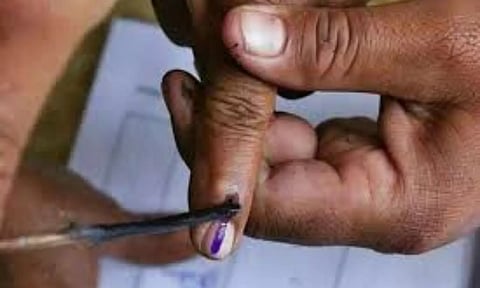

NEW DELHI: Early release of its election candidates list is a trademark BJP practice. It is a signal of confidence, and a dare issued to the opposition. This time, although the election has not yet been called, the ruling party has released its first list of 195 candidates. This is a welcome practice, one that all political parties should emulate. Early disclosure enables voters to parse the candidates’ record on crime and corruption, if any, and positive attainments, if any. Also, the candidates list, seen collectively, will give voters an inkling into the kind of governance they can expect from each party.
The BJP’s first list covers more than 35 per cent of India’s 543 Lok Sabha constituencies, including some in electorally populous states such as Uttar Pradesh, West Bengal, Madhya Pradesh, Rajasthan and Gujarat. The BJP’s friendly media have jumped to certify the list as a brave new beginning. The non-inclusion in it of some serial purveyors of hate speech is being projected as an augury that the ruling party intends to return to sane governance in the new term.
The list has no place for 33 sitting MPs, including three Union ministers—Meenakshi Lekhi, John Barla and Pratima Bhowmik. The biggest cleanup is in New Delhi, where only one of the seven incumbents has been retained thus far. On the face of it, MPs who took the lead in spewing hatred against Muslims in the past five years are getting their comeuppance. The rejects include hate speech specialist Pragya Thakur, an accused in several terror blasts; Ramesh Bidhuri, who cast Islamophobic slurs at an MP in the Lok Sabha; and Pravesh Verma, who organised the boycott of Muslim businesses in the national capital.
The outgoing list also features Harsh Vardhan, the health minister who copped the blame for the government’s colossal mishandling of the Covid-19 breakout; Meenakshi Lekhi, most remembered for threatening an opposition MP to shut up or risk a visit by the Enforcement Directorate; and Jayant Sinha, who posed for photos with goons who had lynched an innocent Muslim man.
While this is welcome riddance, it is not quite proof that Modi’s BJP-led regime has abandoned its policy of brazenness. Sacking some hate-mongers is not sufficient evidence of a serious intent to put aside its tactics of stoking interfaith hatred and allowing Hindutva vigilantes to have a free run. In stark contrast with the cosmetic changes offered in New Delhi, the list of candidates in UP indicates a continuity with the past. Among the candidates renominated is Ajay Mishra Teni, the MP for Lakhimpur Kheri, whose son’s car ran over and killed four protesting farmers. The list also makes no commitment to exclude WFI former chief Brij Bhushan Sharan Singh, who faces serious allegations of sexual harassment.
Nothing illustrates this better than the nomination of Bhojpuri star Pawan Singh to contest the Asansol seat in Bengal. Singh has often targeted Bengali women in songs and abused minorities in his films. It seems like the BJP has an endless supply of degenerates to replace the ones being put out to pasture. Despite the friendly media’s whitewashing, the BJP’s first list is based on electoral expedient rather than parliamentary probity. Where incumbents have been changed, it is to enhance its chances of winning the election rather than a solemn commitment to restore a semblance of decency to politics.